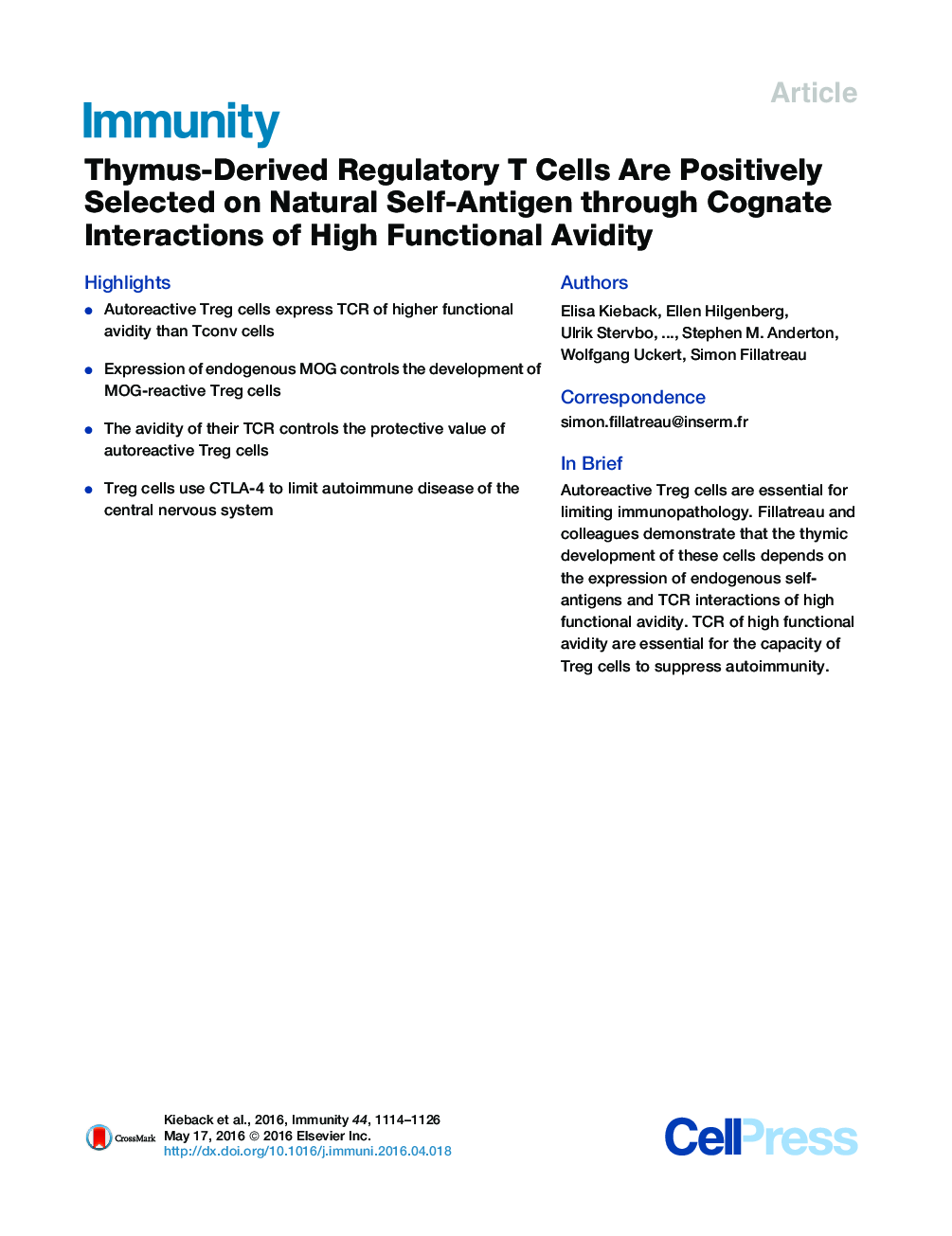| Article ID | Journal | Published Year | Pages | File Type |
|---|---|---|---|---|
| 3352880 | Immunity | 2016 | 13 Pages |
•Autoreactive Treg cells express TCR of higher functional avidity than Tconv cells•Expression of endogenous MOG controls the development of MOG-reactive Treg cells•The avidity of their TCR controls the protective value of autoreactive Treg cells•Treg cells use CTLA-4 to limit autoimmune disease of the central nervous system
SummaryRegulatory T (Treg) cells expressing Foxp3 transcripton factor are essential for immune homeostasis. They arise in the thymus as a separate lineage from conventional CD4+Foxp3− T (Tconv) cells. Here, we show that the thymic development of Treg cells depends on the expression of their endogenous cognate self-antigen. The formation of these cells was impaired in mice lacking this self-antigen, while Tconv cell development was not negatively affected. Thymus-derived Treg cells were selected by self-antigens in a specific manner, while autoreactive Tconv cells were produced through degenerate recognition of distinct antigens. These distinct modes of development were associated with the expression of T cell receptor of higher functional avidity for self-antigen by Treg cells than Tconv cells, a difference subsequently essential for the control of autoimmunity. Our study documents how self-antigens define the repertoire of thymus-derived Treg cells to subsequently endow this cell type with the capacity to undermine autoimmune attack.
